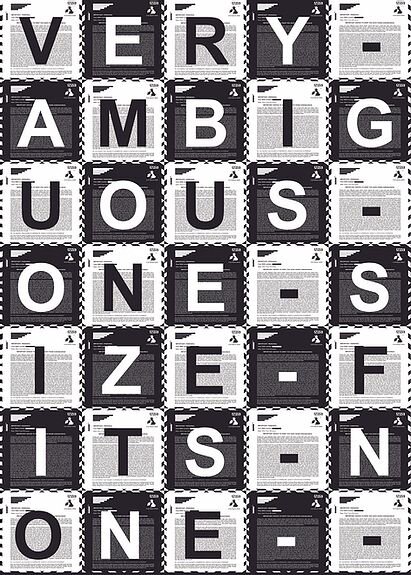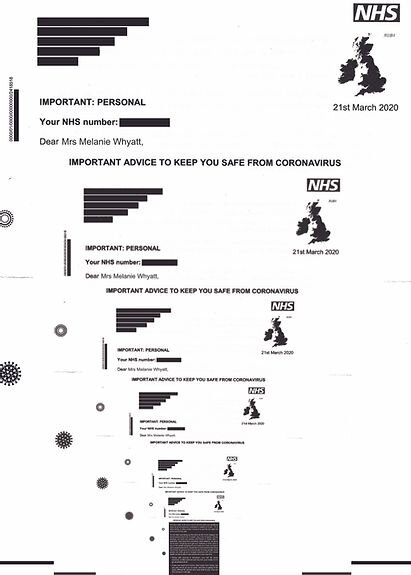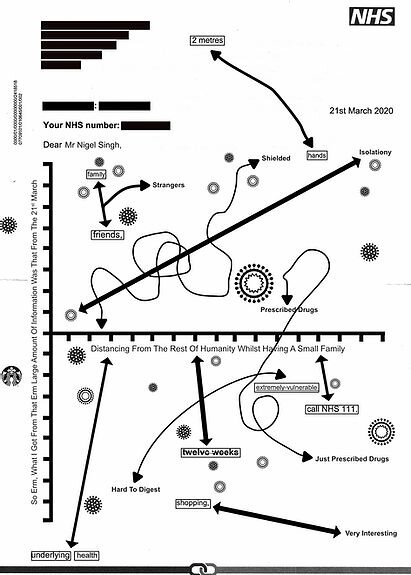Bostin News - Important. Personal: Fragments
People who were at high risk should they contract COVID-19 were sent a letter in March, instructing them ‘to stay at home at all times and avoid all face-face contact for at least twelve weeks from today’. According to the Office for National Statistics, the NHS recognised around 2.2 million people as being at high risk, meaning that roughly 2.2 million people in the United Kingdom have been forced to shield for at least three months.
Hannah Taylor, live performance artist and facilitator, is one the many residents in the Midlands who has been shielding since March. Working from home, she was commissioned by Creative Black Country in May to run a project called ‘Fragments’.
The project involves people from Wolverhampton who received the NHS letter advising them to shield. Each week, one of the participants recorded themselves attempting to remember the information provided by both the letter and the participants before them. These video responses documented the differences in how people have paraphrased the letter to reveal the various interpretations of the NHS’s instructions.
Numerous phrases have been coined by the participants to summarise elements of the letter, including: “there are some new rules”, “we need to combat the virus”, and “avoid life”.
While these kinds of phrases are what Hannah expected to hear; Fragments is also shining a light on an important societal problem that needs to be addressed.
“In the beginning it was really easy and interesting to get people’s responses”, Hannah says. But as days pass with no foreseeable end to the pandemic, the project is becoming tough to bear. “People are a lot more anxious and upset that I contact now.”
The harsh reality of how long the shielding population have had to remain indoors is manifested by residents reflecting on details of the letter and the words of other participants. “It forces you to have an emotional response even if you’re trying not to because there’s only so much information you can remember”, Hannah says.
Over time, the process of recalling what the NHS letter states becomes more painful: “They’ve been inside so long and they don’t want to revisit how that’s making them feel”. Some of the residents dropped out from participating in the project due to suffering from stress and sadness. “They’re having to record something in isolation that talks about and amplifies that isolation because everything is through screens only”.
Not only was Hannah running the project, she was also having numerous conversations with residents who were struggling with anxiety and trauma. Without a background in mental health training, however, Hannah has highlighted the urgent need for professional mental health services.
Residents may no longer feel up to recording themselves recalling elements of the letter, but Hannah has received lots of messages of appreciation for the video responses. Some have asked both for support groups to be set up and to chat to the participants from the videos. “It shows that the project is needed, but also shows that more is needed from a mental health support system”.
It is important to acknowledge that support is needed for residents of all ages. The news often implied that those who are shielding were elderly, but this was not representative of the many young people who have also had to shield for fears over their susceptibility to COVID-19. “It makes me really angry”, Hannah says, “it doesn’t really tell the story of this entire range of people whose lives have been put on hold”.
And this is exemplified by the variety of participants in Fragments. Everyone has a different story, but they all received the same letter and they share similar feelings surrounding the lockdown. “This sense of bond or community is being produced by anxiety and isolation”, Hannah tells me.
Fragments may have originally been organised to explore the ways in which memorised facts are affected by our emotions, but both the insight into the lives, and support the project has provided to those shielding raises critical questions about what mental health support services are actually available for those who are shielding.
The video responses from the project can be found through the website https://www.fragmentsarchive.co.uk/
Words: Eve Orford - Bostin News Editorial Assistant



